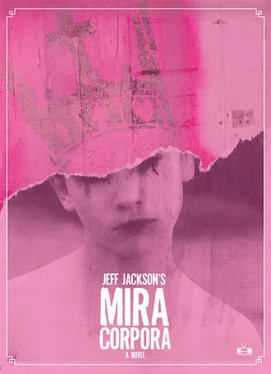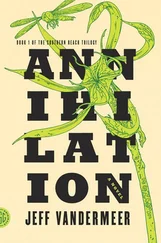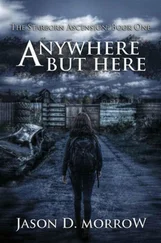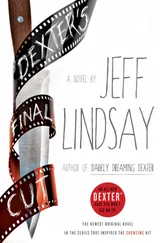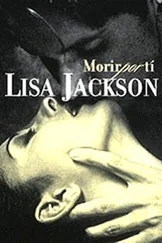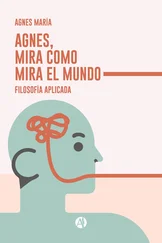Jeff Jackson - Mira Corpora
Здесь есть возможность читать онлайн «Jeff Jackson - Mira Corpora» — ознакомительный отрывок электронной книги совершенно бесплатно, а после прочтения отрывка купить полную версию. В некоторых случаях можно слушать аудио, скачать через торрент в формате fb2 и присутствует краткое содержание. Год выпуска: 2013, ISBN: 2013, Издательство: Two Dollar Radio, Жанр: Современная проза, на английском языке. Описание произведения, (предисловие) а так же отзывы посетителей доступны на портале библиотеки ЛибКат.
- Название:Mira Corpora
- Автор:
- Издательство:Two Dollar Radio
- Жанр:
- Год:2013
- ISBN:9781937512149
- Рейтинг книги:5 / 5. Голосов: 1
-
Избранное:Добавить в избранное
- Отзывы:
-
Ваша оценка:
- 100
- 1
- 2
- 3
- 4
- 5
Mira Corpora: краткое содержание, описание и аннотация
Предлагаем к чтению аннотацию, описание, краткое содержание или предисловие (зависит от того, что написал сам автор книги «Mira Corpora»). Если вы не нашли необходимую информацию о книге — напишите в комментариях, мы постараемся отыскать её.
Mira Corpora — читать онлайн ознакомительный отрывок
Ниже представлен текст книги, разбитый по страницам. Система сохранения места последней прочитанной страницы, позволяет с удобством читать онлайн бесплатно книгу «Mira Corpora», без необходимости каждый раз заново искать на чём Вы остановились. Поставьте закладку, и сможете в любой момент перейти на страницу, на которой закончили чтение.
Интервал:
Закладка:
The last box dates from the time just before I ran away. A tattered school text about the civil war, a mangy baseball cap, and one of my treasured cassettes. I used to make mixes for myself by taping favorite songs off the radio. The black ink has paled, but I can still decipher the song titles scratched across the plastic case. I thought I’d brought all these tapes with me, but I must have orphaned this one.
I uncover a cache of equipment in the hall closet. From an ungainly heap of clocks and lamps, I extract an old boom box. At first, I hesitate to set up the machine and insert the cassette. My finger presses play with a mixture of dread and anticipation. I watch the black tape wind a precarious path through the spools. The music has a slightly warped warble, but the sound comes through clear enough.
I recognize the songs immediately, but something about them has changed. The tunes have fermented and soured. Instead of remembering the solace they brought me, the music hurtles me back to the desperate time when I taped them. It’s as if the sadness of that younger person has leeched into the very fibers of the magnetic tape. I start to feel lightheaded. It’s hard to breathe. By the third song, I’ve fled the room.
After a few minutes pacing the garden, I regain my composure. I scoop up a stone from the nearby pile and return to the house. I unplug the boom box and tip it gently onto its side. Then I attack the machine. I strike it with the stone over and over, harder each time, thrashing it with a reckless fury. I smack it until the plastic cracks, the interlocking gears fracture, the metal innards break apart. I smash each of the pieces into still smaller parts. Plastic splinters spray everywhere until the machine is dispersed to a fine scattering of faceless trash. Until it’s finally something I can bear to look at.
I’ve earned a bottle of vodka. I slump onto the living room floor and take a serious swallow. The burn could never be strong enough. I ease onto the living room floor opposite the urn, as if we’re engaged in a staring contest. I open my mother’s notebook and flip through the pages of her elegy, hoping they’ll offer some insights. But there’s only empty platitudes about rituals neither of us understand.
I keep drinking to dilute the floodtide of memories about the times my mother did X, Y, and Z. Soon I’m so blind drunk that I can barely stand. The walls feel like they’re contracting around me. The sunlight filtering through the windows shrinks until it’s nothing more than a spotlight at the center of the room. This house is my mother’s trump. Her way of staking a claim on me. Exerting an influence in death that she couldn’t in life. I’m a child again, buried alive in the same hole. I’ve boomeranged back to the beginning.
There has to be some way to break her spell. I drink my way through the upper part of a bottle of gin, then careen into the kitchen carrying her ashes. With a dramatic flourish, I dump the silver urn at the bottom of the trash can. I throw back my head in defiant laughter, but the sound is a pinched whinny trapped in my throat. Maybe an hour later, I find myself digging the urn out of the trash. I return the canister to its position opposite me.
A few glasses later, I stumble out of the house with the urn tucked under my arm. I head into the woods. It’s a relief to be outside and there’s a lightness to my unsteady steps. But as I travel further, an eerie familiarity settles over the sights. The feathery quality of light filtering through the branches. The purposeful arrangement of gigantic boulders under a lightening-struck oak. The trickling water patterns of the creek at low rainfall. In a lonely place in the forest, I begin to dig a hole.
I scoop out the raw reddish earth using my hands. Dirt smears my forearms. Fibrous roots collect under my nails. I place the urn in the rutted ground and cover it with mud, twigs, and pine straw. I stamp down the grave until it blends seamlessly with its surroundings. Once I figure that I’ve camouflaged the spot well enough that I’ll never be able to find it again, I weave my way back to the house. I crack open a fresh celebratory jug of something or other.
It’s probably morning when I find myself weeping in the middle in the woods. I’m bent over, hands clutching my knees, sobbing hot tears. A beard of snot covers my chin. I stagger through the forest, my feet wandering about somewhere beneath me. Every few steps, I tumble to the ground. Finally it’s easier to crawl on my hands and knees. I’m convinced I’ll never be able to locate my mother’s ashes, but the awkward mound of earth is easily spotted even by my bleary eyes. I plunge my hands into the hole and with surprisingly little effort pull out the silver urn.
Back at the house, I puke in the kitchen sink. I heave up watery mouthfuls of undigested alcohol and sticky plumes of black-green mucus. My throat is red and blistery. I collapse on the floor and lie half-conscious next to the dirt-encrusted urn. The seal has broken and some ashes spill out. They’re nothing more than sooty snowflakes. Maybe I’ve been uncharitable toward my mother, incapable of seeing the house as an olive branch from beyond the grave, a gesture of forgiveness, a gift. I try to absorb some vibration through the urn’s metal casing. I keep turning it over in my hands, hoping the right angle will release a signal from my mother, the way sea shells contain the sound of the ocean. Soon the exterior of the canister is covered with fingerprints, its shiny surface blotted out by my own greasy whorls.
I wake up staring at the floorboards. The air is scented with stale sweat and sour alcohol. There’s a dull plaque of vomit on my tongue. I’m slow to notice the cold evening light that leaks through the windows. The front door is open and the wind escorts a party of leaves across the carpet. A circus of white moths circle the lamps. I try to decipher the faint noises that seem to be calling from the forest. It’s probably just the insistent whine of the wind. But it also sounds similar to the baying of a distant pack of dogs.
Lying here, I’m overcome by a surpassing sense of peace. In a rare moment of clarity, I know what I have to do.
First: I flush my mother’s ashes down the toilet.
Second: I tear up the letter of residency and toss it in the trash can.
Third: I rip the pages of the eulogy from the notebook, add them to the trash, and incinerate the whole lot.
I watch my mother’s last wishes curl in the fire until I’m positive there’s nothing left to salvage. Until they’re nothing more than a fistful of cinders. My attention turns to the half-empty notebook. I stare intently at the remaining blank pages. They seem to beckon. Slowly I screw up my courage. I want to write some version of what’s happened to me, but I have no idea what sort of story might spill out. I place the notebook on a flat surface and fold it open to the third page. I tap my pen against the paper. One, two, three. It’s time to begin.
MIRA CORPORA
(My first fiction)
“Passing off what might be true as fiction seems a better vocation to me than passing off what is quite possibly fiction as truth.”
— Robert Frank
IT BEGINS WITH A TREE IN A FIELD. A LONE orange tree in the middle of a grassy field. Observe how the moon shines exactly three-quarters bright. A warm scentless breeze tickles the undersides of the shiny leaves and orbs of fruit can be seen glistening on the branches. Plenty of ripe oranges for the taking. This scene resembles something out of a painting, the ethereal daubs of blue moonlight, the robust sinews of shadow, the perspective so flat as to be unreal — and then it is a painting, tacked in a gilt frame, perfectly centered on a white wall, hanging inside a gallery. It is still night, the building is dark, and nobody is there to watch it.
Читать дальшеИнтервал:
Закладка:
Похожие книги на «Mira Corpora»
Представляем Вашему вниманию похожие книги на «Mira Corpora» списком для выбора. Мы отобрали схожую по названию и смыслу литературу в надежде предоставить читателям больше вариантов отыскать новые, интересные, ещё непрочитанные произведения.
Обсуждение, отзывы о книге «Mira Corpora» и просто собственные мнения читателей. Оставьте ваши комментарии, напишите, что Вы думаете о произведении, его смысле или главных героях. Укажите что конкретно понравилось, а что нет, и почему Вы так считаете.
